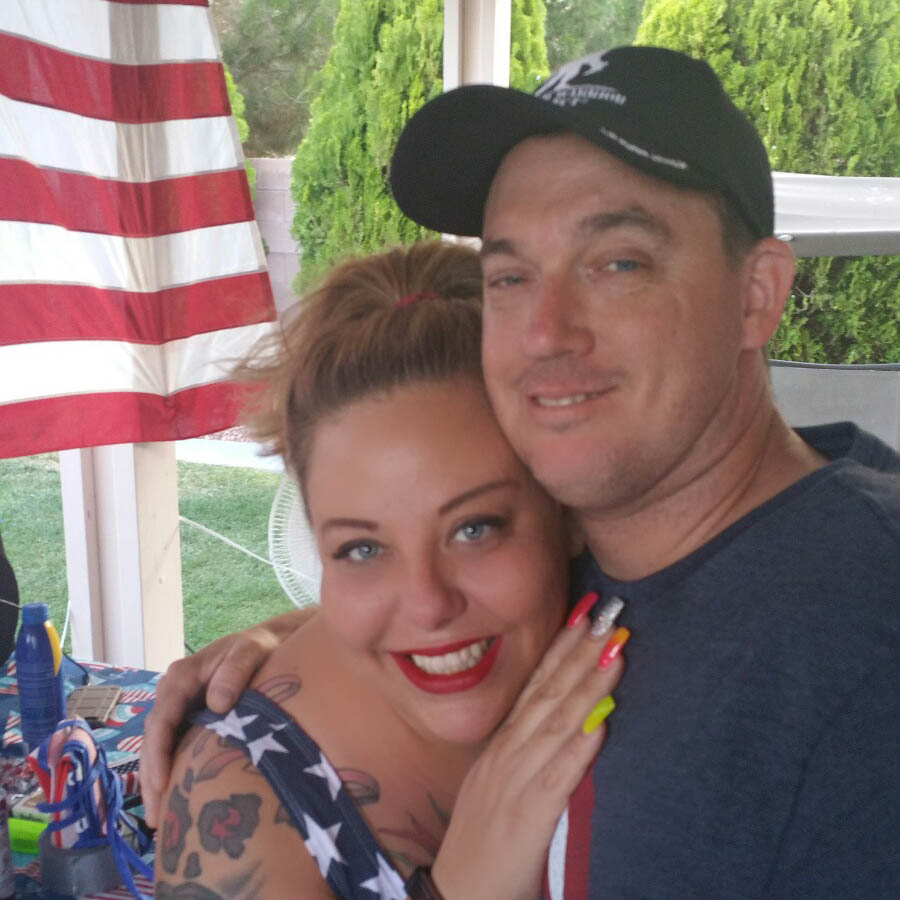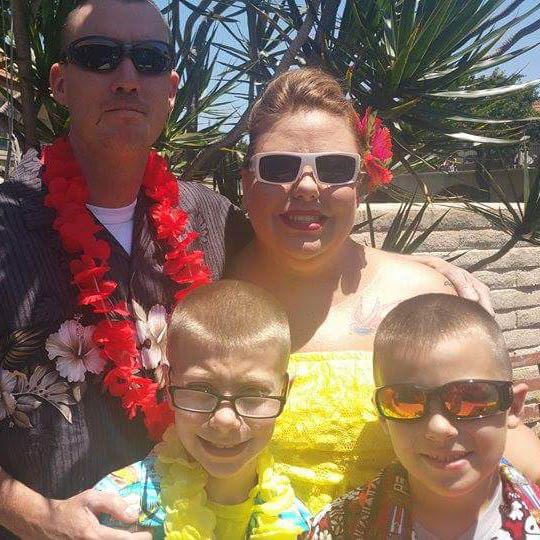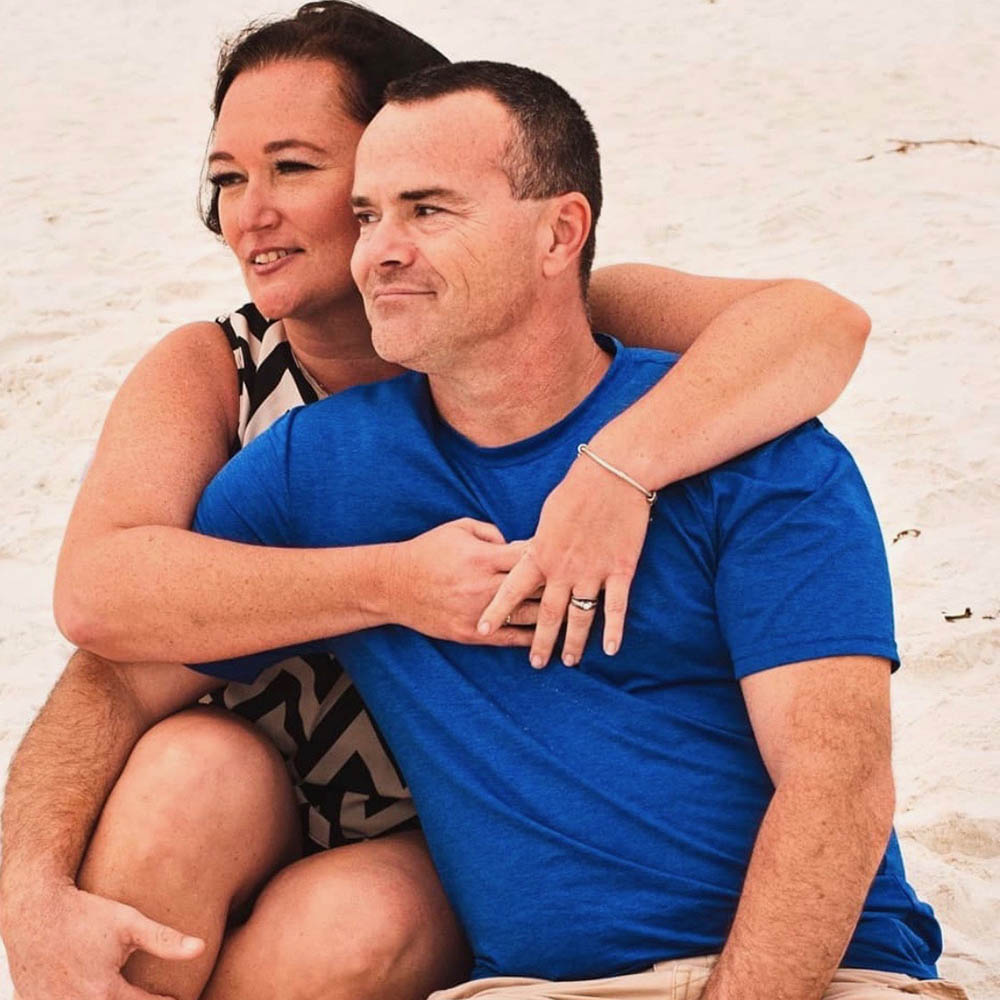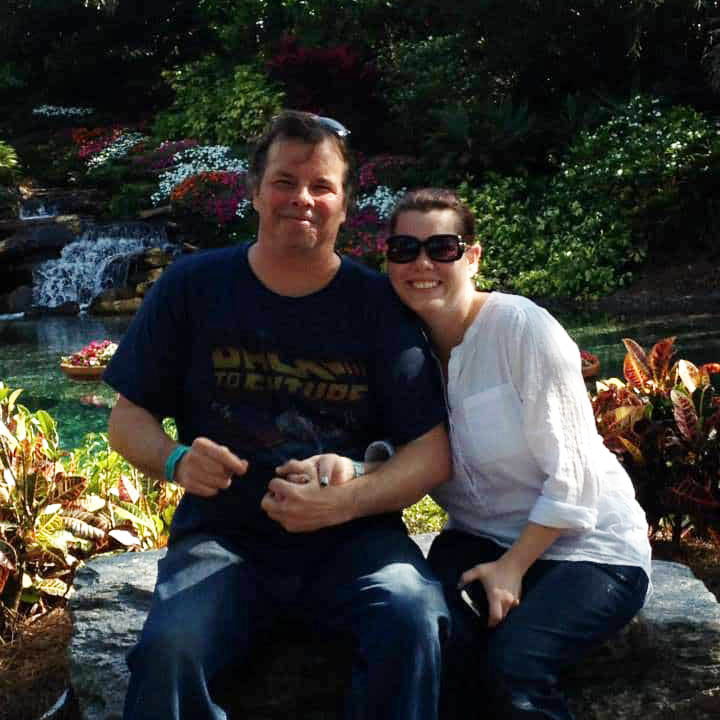Michelle Bassett is a military spouse and caregiver for her husband, James Bassett, a retired Army specialist. The two are both cancer survivors and James was a caregiver for Michelle after her mastectomy and several other surgeries. But physical injuries from his time in the service became more problematic and now Michelle is his full-time caregiver.
She is also the support group leader in Las Vegas, Nevada, for Operation Homefront’s Hearts of Valor program. Facilitated by group leaders, Hearts of Valor provides support, information and training for caregivers nationwide , and once a year, provides an all-expenses paid retreat in San Antonio, Texas, for a group of caregivers to have a chance to recharge, care for themselves, and connect with others caregivers in similar situations. Michelle attended the retreat in 2017.
Michelle believes in open communication and is a big advocate of therapy. As a group leader, she has brought in marriage and sex therapists to talk to caregivers about intimacy with their partners.
“Honestly, there are so many taboo topics (spouses) don’t want to touch on,” she said. “They think they are alone.”
In an effort to help others, Michelle described the biggest taboo topics and how to cope with the challenges presented.
Taboo topic No. 1: Sex.
“This is the biggest,” Michelle said.
Medications, traumatic injuries both physical and emotional, PTSD, all of those affect the libido. For example, traumatic brain injuries can cause people to be hypersexual or lose all sex drive, she said. Both can create problems and without talking about how to overcome the differences, both can cause animosity. Michelle said she and James found a happy medium but that only came through talking.
“I encourage everybody to have a very wide-open dialogue,” she said. “You have to make things comfortable and take the taboo out of the subject. It’s only taboo if you think it’s taboo. The sooner we normalize this, the sooner we have open dialogue. If the (servicemember) starts getting embarrassed and wants to shut down the conversation, walk away, but approach it again at a later time. Finally, they will give in because they realize you are not going to give up. Take the stigma away from it.”
Taboo topic No. 2: Caregiver burnout/mental wellness.
“Caregiver suicide rates have spiked in last two years,” Michelle said. “No one wants to talk about it. We are all focused on veteran suicide and that’s bad enough, but now we are seeing caregivers attempt suicide or commit suicide. Everyone focuses on the veteran, the warrior, this hero, and his mental health and his mental well-being – but we cannot forget the caregiver.”
For caregivers, especially spouses, there is a prevailing attitude that it is their job to take care of the servicemember, even if that is detrimental to their own mental health. Michelle talks to a therapist and encourages others to do the same. She encourages calling hotlines or looking for nonprofits that if the caregiver does not have health insurance or access to a therapist locally. Chances are they don’t have access to mental health treatment. Michelle points to groups like Hearts of Valor, Hidden Heroes, and Give an Hour.
Taboo topic No. 3: Domestic violence.
A lack of impulse and anger control from brain injuries and PTSD can turn into domestic violence, Michelle points out. If the caregivers have no one to talk to, they can be in a dangerous situation. All included, there is mental, physical, emotional, and financial abuse that is meant to control the caregiver.
“We give up careers to take care of our veterans,” Michelle said. “For us, the only money coming in is under my husband’s name. I don’t have to worry about that because my husband isn’t a controlling man so I don’t have that fear. But when I gave up my career, we set up a bank account for me. You don’t know what these injuries are going to bring up. My husband is one of the nicest men ever. However, when he goes off his medications, he’s downright mean.”
Michelle has recorded him and played it back to him because he does not realize what he is saying.
A strong support system is key. Michelle said just like for therapy, there are often local, state, or nationwide options available that caregivers may not know about.
For those who think they know a caregiver is facing abuse, Michelle said “Just be there as a friend, and when they are ready then you help them find the resources. You help them get out of the situation.”
On last piece of advice from Michelle is to help your veteran find his or her own support system.
“Whether counseling, a friend, online video games, every veteran needs to feel normalized again,” she said. “They need to feel like themselves pre-injury.”




